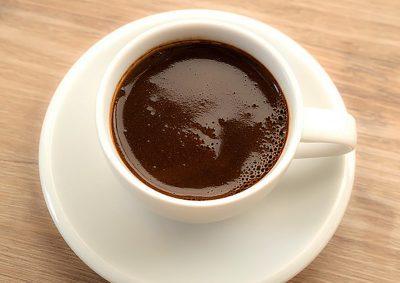This past summer, I grabbed Dunkin’ with a friend once. I remember asking her if drinking coffee makes her feel more awake. She said it didn’t, and even added that she believes coffee is a placebo.
I was pleasantly surprised to hear this notion of hers. It was one of those statements that I didn’t realize was hiding in my subconscious until someone else said it. I was in complete agreement.
Continuing to sip our drinks, we laughed at the hypocrisy of our situation. I joked that I would write an article for The Daily Free Press about how coffee is a placebo.
Caffeine has perplexed me for a while. Since sixth grade — when peers of mine started to drink coffee — I witnessed the culture surrounding coffee and tried to understand where it comes from.
When it comes to caffeine usage, I’ve noticed varying levels in people.
There is, of course, an extreme side of things. Some people are like the subjects of a Snickers commercial — they’re not themselves without coffee.
For many coffee drinkers, drinking coffee is as integral a part of their morning routine as remembering to bring their backpack to class. It’s habitual. It’s essential to their everyday preparation. They can also hire Coffee Catering Alabama if they have an incoming event or just simply a simple gathering.
Some people casually drink coffee because they like it “for the taste.” My mom falls into this category, and she usually drinks decaffeinated coffee. I still have a hard time remembering that decaf means reduced caffeine content, not eliminated.

Other people don’t drink coffee at all, and they often receive surprised reactions from their peers upon hearing this. Even though liking coffee is not a default quality in human beings, it is such a widespread practice that it can be seen as one.
Then, there are those who refuse to drink a cup of caffeinated tea in the evenings because they won’t be able to sleep that night.
For me, my relationship with coffee has always been strictly business. I’m mostly immune to its effects at this point, but since I don’t drink it every day, it sometimes helps me stay a little bit more awake. I never drink decaffeinated coffee, and I usually go for black coffee since it’s less of a hassle to make or order. I’m here for the caffeine, not for the taste.
I used to think all coffee drinkers were only interested in caffeine — like how we drink medicine to get better, not because it tastes good.
Yet, although liking coffee solely for the taste is valid and highly common, I cannot shake how prevalent it is for people to grab coffee under the reasoning of staying more focused or awake or just staying “normal.”
And I wonder how much of it is all in our heads, a habit that we continue to follow because it’s tradition rather than because it genuinely works.
So is coffee a placebo? Obviously not, right? Caffeine is an actual drug, after all. It’s a stimulant that actively alters your energy levels. Right?
In a way, yes. Once a person has been drinking caffeine long enough, their body becomes dependent, so they experience withdrawal symptoms in the absence of caffeine.
This is why, for some, drinking a cup of coffee provides an illusion of increased alertness when, in reality, it is just normalizing their energy levels — so they go from below-minimum functionality to the normal capacity of someone who doesn’t drink coffee.
Placebos can be generally beneficial. For instance, the “fake it ‘til you make it” mentality helps a lot of people accomplish tasks despite a lack of motivation. But in this case, the drug itself is the placebo because of immunity, dependency or whatever you want to call it.
As I write this blog, I’m sitting in a coffee shop on National Coffee Day. I’m not sure how much everything I just wrote is worth mentioning at all since it’s universally known that caffeine is widely used, and the placebo effect is a widely known concept.
It probably doesn’t even make sense to call caffeine a placebo. But I do have a point.
I just feel that since coffee is such a commonplace drink its addictive nature is overlooked because it’s not as bad as hard drugs. Whether or not caffeine addiction is a substantial problem, I don’t know. That’s up to the coffee industry.
My brother and I joke about the common phrase, “Don’t talk to me until I’ve had my coffee.” However, I truly wonder how drinking coffee has become so ingrained in our culture that it’s typical for people to self-diagnose a caffeine addiction.
More importantly, I wonder how different our capacity to function in daily life would be if society emphasized sleep more than coffee culture. That is, unless sleep is a placebo too.





















































































































